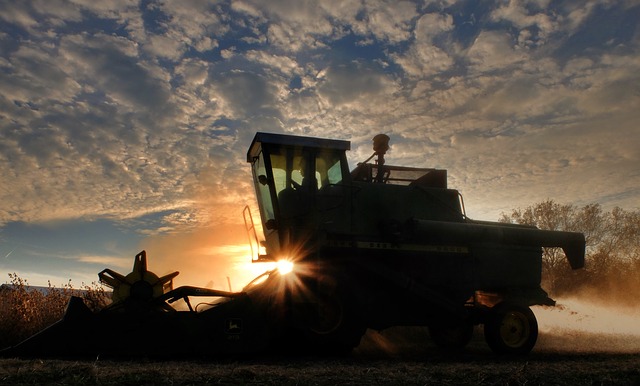When running a construction company, ensuring that your plant machinery is in good working order is arguably the most important aspect of your business. If your machinery is struggling, then your business will struggle – the matter truly is that black and white.
In order to avoid business issues, you may find it beneficial to employ a constant focus on establishing and maintaining a few “good practice” rules in regards to the management of your machinery – and here are a few inclusions you may find particularly beneficial.
A robust maintenance schedule
It would be fair to say that the construction industry cannot survive without good maintenance of all machinery. No matter how good a machine is when it rolls off the production line, the heavy duty work it will complete means that further refinements and improvements will need to be made to ensure each machine works exactly as it should.
So, what constitutes “good maintenance”? Skilled staff who can complete all maintenance works to the highest possible standard, of course. However, even the best workers cannot conduct maintenance effectively without a detailed maintenance schedule to adhere to. As a result, you will thus need to develop a comprehensive, detailed maintenance schedule that allows for the quick identification of any immediate issues, and thus allows for repairs to be arranged before the problem becomes critical.
In addition to the maintenance schedule itself, it is particularly worth noting the importance of keeping good records of all maintenance work that has been performed. Good record keeping helps you to keep track of not only the work that has been completed, but also make notes regarding work that may be necessary in future. Many problems noted during maintenance checks are not necessarily serious in the moment, but they will be after a few more months of use; good records ensure that these issues are then followed up on at the right time.
Build relationships that allow for quick repairs
A robust maintenance schedule should mean that your business can identify machines that are in need of repair, which is hugely important, but is just the starting point: you’ll then have to actually arrange the repair. Unfortunately, facing the possibility of repairs is hugely concerning for most construction business owners. Repairs mean that the machine in question is essentially unusable for a period of time, which can be potentially harmful to the business’ ability to operate as it normally would.
To avoid this issue, and get your machines back up and running as quickly as possible, seek to develop relationships with reliable, reputable companies who can conduct repair work or supply parts quickly and efficiently, every time. By developing long-term relationships with a service center for off highway drivetrain systems or a specialist in plant transmissions, you’re all the more likely to be able to secure the parts you need, and have the necessary repair completed, in the shortest possible time. As a result of building these relationships, no breakdown will feel like a disaster – as you’ll already know exactly who to call for assistance – and you can thus embark on the repair process immediately, confident of a quick, efficient turnaround.
Do all you can to protect your machinery when not in use
Perfect clear blue skies, moderate temperatures, and next to no wind are the perfect conditions for construction machinery; unfortunately, these perfect conditions tend to be relatively few and far between.
It is worth noting that all forms of weather outside of what would be considered ‘perfect’ conditions can be problematic, be that extreme heat, extreme cold, or – and particularly if operating cranes – high winds. As you cannot directly control these elements, you will instead primarily have to focus on information-gathering and adapting to specific circumstances.
To do so, it’s first helpful to check the monthly forecast during a project – up to one week ahead should be fairly reliable. If you note any problems on the horizon, plan for these as soon as possible, activating contingency scenarios that will allow you to keep working. However, the forecast alone cannot tell you everything you need to know; you’ll also need to check the weather every day and be willing to make adjustments – and perhaps even postpone work for the day – if you note any issues that were not originally forecast.
Protect vehicles when not in use
When not working, your machines need to be stored in a clean, dry, and dust-free environment in order to prevent deterioration and protect sensitive internal components. Furthermore, you will also need to ensure your storage facility has adequate safety measures in place – such as security cameras and, for high-value equipment, guards – in order to prevent theft.
While it is important to establish good storage on your premises, the nature of construction work often means that you will not always be able to use your own storage. If you are working on a site many miles from your location, then it can be next to impossible to return to your base every night. Doing so would be costly in terms of fuel, but it is also something of a logistical nightmare, and could lead to machine operators having to leave the site earlier than preferred in order to return the machine within their shift. As a result, you – like many other construction business owners – will have relatively little choice than to leave your machinery at the site overnight.
In such a scenario, all you can realistically do is seek to protect machinery as well as possible given the circumstances. Always try to ensure that they are stored at a locked, secure site, and use covers – where possible – to reduce potential damage from the elements. Admittedly, these measures are not ideal, but they will at least offer a measure of protection that you can benefit from in extremis.
Focus on both staff retention and recruitment
Finally, an often-overlooked element of good machinery practice is the people who operate the machines – your workers. A good machine operator is worth their weight in gold, utilizing their expertise, knowledge, and skill to ensure that the machine works as it should and is protected throughout each project.
As a result, it is good practice to ensure that your recruitment strategy in regards to machine operators is incredibly robust. Qualifications on a resumé are all well and good, but what you need to know is how someone performs on the job, so offering trial periods to a number of potential candidates is definitely an option worth exploring. By offering a trial rather than a full contract upfront, you have the opportunity to assess the operator’s skills and ensure you are happy to leave them in charge of your valuable equipment.
In addition to being cautious in regard to who you hire on a personal basis, it is also worth thinking about how you retain staff members who have performed well. As you are undoubtedly aware, skills shortages abound in the construction industry, which means that most qualified, experienced workers can essentially have their pick of jobs. Due to this, you may want to consider offering employee perks and loyalty bonuses to encourage workers you have come to trust to remain with your company for the long-term.
In conclusion
When you run a construction business, the management of your machinery is critical to your ability to operate your business. By developing good machinery practice – inspired by the ideas as presented above – you can look forward to a bright future, free of machinery-related hassles, and thus all the more likely to enjoy success.



Recent Comments